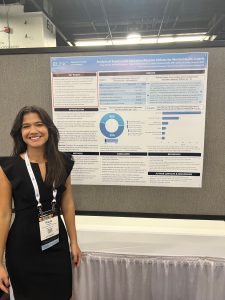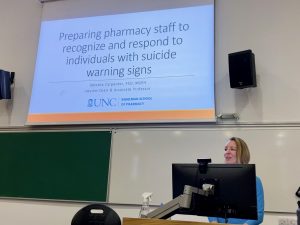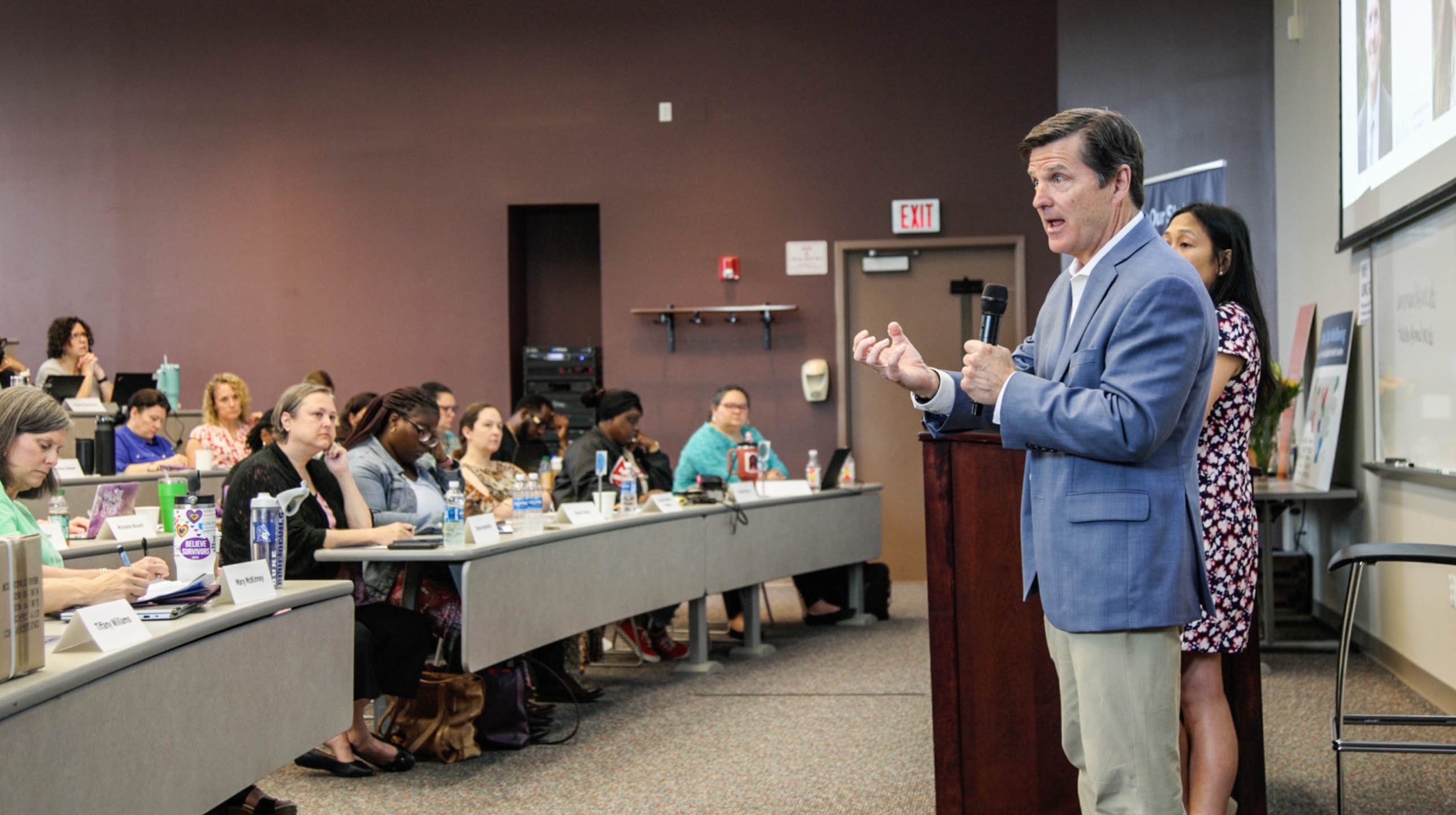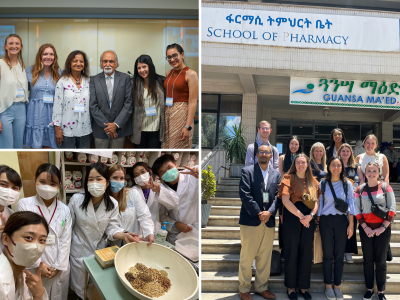May 22, 2024
May is Mental Health Awareness month, and the UNC Eshelman School of Pharmacy underscores its commitment to improve well-being and resiliency in the first priority of the BEYOND strategic plan. Here are a few recent highlights of what School faculty, staff and students have done in the mental health space:

Suzanne Harris, Pharm.D., director of well-being and resilience and associate professor, and Kathryn Fuller, Pharm.D., director of experiential education and assistant professor, served as co-faculty advisors for recent Pharm.D. graduate Paula Paseiro, Class of 2024, as part of her longitudinal research project in her Advanced Pharmacy Practice Experience (APPE) year. Their project focused on an environmental scan of mental health language in experiential education absence policies across all accredited pharmacy schools. The premise of their project was based on an identified gap in the literature for well-being initiatives for pharmacy students in experiential education (EE). Their study found that only 3% of experiential absence policies included explicit mental health terminology, though literature supports that stigma is a barrier for students to request time off for mental health or wellness reasons. Future steps could explore students’ perceived interpretation of existing attendance policy language and its impact on requesting absences for mental health reasons. This was presented at the American Society of Health-System Pharmacists (ASHP), American Association of Psychiatric Pharmacists, and UNC Behavioral Health Convene conference. In addition, Fuller will present this work at a roundtable at the American Association of Colleges of Pharmacy in July.

Delesha Carpenter, Ph.D., professor and executive vice chair for the Division of Pharmaceutical Outcomes and Policy, presented her work on suicide prevention in pharmacies at the Suicide Research Symposium and gave a webinar for American Foundation for Suicide Prevention and the International Academy of Suicide Research earlier this year. She provides gatekeeper training (Pharm-SAVES) to community pharmacists to improve their suicide prevention knowledge, self-efficacy, communication and referral behavior. Pharmacists are one of the most accessible health care providers, and 22% have had patients ask them for a lethal dose of medications. Her work shows that participating in Pharm-SAVES improves outcomes for pharmacy staff and student pharmacists in how to communicate with someone contemplating suicide and knowing what signs to look for.

Harris and Jon Easter, BSPharm, professor of the practice and vice chair for the Division of Practice Advancement and Clinical Education (PACE), spoke at Carolina Across 100’s suicide prevention resources fair. They were invited as an on-campus group to share the School’s efforts related to behavioral health and suicide prevention. The goal was to provide ideas for strategies partners of the Carolina Across 100 could implement, opportunities to connect them to existing efforts in pharmacy and guidance to their teams. Specifically, Harris spoke on some of the School’s trainings and efforts on suicide prevention and mental health and the many student organizations that do community outreach related to mental health, substance use disorder and suicide. Easter highlighted some of the PACE division’s work around practice advancement and the expanding role of community pharmacy in the area of behavioral health screening programs.
To learn more about wellness resources at the School, visit here.
Latest News

New digital health concepts aim to prevent overdoses

Monash Ph.D. student enhances Alzheimer’s research while at Carolina


